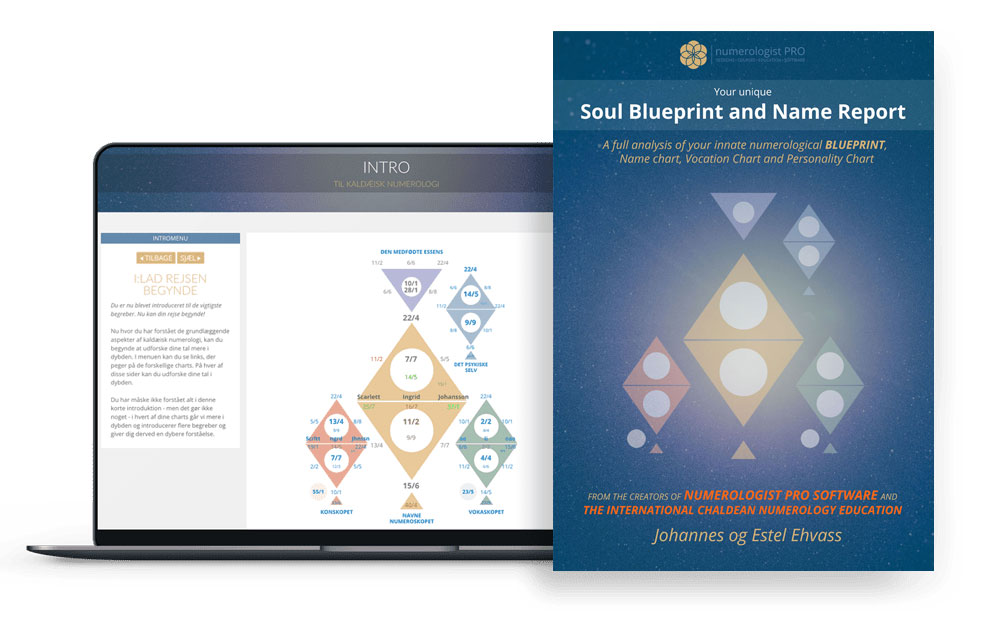Astrological Associations and Schools

Johannes Ehvass
Welcome, dear reader! The Enlightenment, often hailed as the Age of Reason, ushered in an era where logic and empirical evidence reigned supreme. As society championed scientific discovery and rational thought, astrology faced a unique challenge. Positioned at the intersection of ancient beliefs and emerging skepticism, the celestial practice found itself both critiqued and revisited. Yet, even amidst this intellectual revolution, the allure of the stars persisted, reflecting the enduring human desire to find meaning beyond the tangible. Join me as we explore this dynamic period, where astrology navigated the delicate balance between tradition and transformation.
Founding of Astrological Associations Worldwide
Introduction: The Need for Organized Astrology
Understanding Astrological Associations

In the vast realm of astrology, associations have always acted as a cohesive force, gathering like-minded individuals to further the study and understanding of celestial influences on earthly affairs.
The Evolution of Astrological Thought
As astrology evolved over the centuries, so did its practitioners’ need for a more formalized system of learning, sharing, and accreditation. This need led to the formation of organized associations.
The Birth of Astrological Associations
The Late 19th Century: Early Beginnings
The late 19th century witnessed the founding of some of the first astrological associations. With astrology’s revival during the Romantic era, practitioners felt the need to come together and form organizations dedicated to the study and propagation of astrological knowledge.
20th Century: A Surge in Organized Astrology
As the world transitioned into the 20th century, interest in astrology grew exponentially. This century saw the establishment of numerous astrological associations across various continents.
International Astrological Associations
The Astrological Association (UK)
Founded in the 1950s, the Astrological Association in the United Kingdom aimed at promoting and supporting the study of astrology in all its branches. It played a pivotal role in the modern astrological revival in Europe.
The American Federation of Astrologers (AFA)
Established in 1938, the AFA is one of the oldest astrological organizations. It focused on education, accreditation, and the promotion of astrology as a science.
The International Society for Astrological Research (ISAR)
With a more global approach, ISAR was dedicated to encouraging the highest standards of quality in astrology. Its emphasis on research and professionalism set it apart.
Regional and Specialized Associations
Regional Focus: Tailoring to Local Astrological Needs
Several regional associations emerged catering to the specific needs and interests of local astrological communities. These associations often blended traditional practices with modern techniques, reflecting the cultural richness of their regions.
Specialized Associations: Delving Deeper
Some associations were founded with a particular focus, such as Vedic astrology, financial astrology, or medical astrology, allowing practitioners to delve deeper into specialized areas.
Impact of Astrological Associations on the Community
Standardizing Practice and Ethics
Astrological associations played a crucial role in creating a standardized code of practice. They set ethical guidelines, ensuring that practitioners maintained a high level of integrity in their work.
Education and Certification
Many associations introduced certification programs, elevating the profession’s credibility. They organized conferences, workshops, and seminars, fostering continuous learning within the astrological community.
Building a Global Astrological Community
Associations bridged gaps between astrologers from different parts of the world. They fostered collaboration, encouraging a sense of unity and shared purpose among astrologers globally.
Conclusion: The Legacy of Astrological Associations
The founding of astrological associations marked a significant step in the evolution of astrology. These institutions, with their emphasis on education, ethics, and community, have played an instrumental role in shaping modern astrology’s landscape, ensuring its continued growth and relevance in today’s world.
Prominent Astrological Schools and Their Philosophies
Introduction: The Diverse Landscape of Astrological Education
Need for Structured Learning
As astrology’s popularity grew over the decades, a significant need arose for more formal education in this field. Structured learning environments allowed for a deeper understanding and professional approach to astrology.
The Birth of Astrological Schools
Astrological schools were established to meet this need, offering courses ranging from introductory levels to advanced professional certifications. These schools often were closely linked or even founded by astrological associations.
The Notable Schools of Astrology
The Faculty of Astrological Studies (FAS)
Established in 1948 in London, the FAS is one of the oldest and most respected astrological schools worldwide. Its courses combine both traditional and modern techniques, emphasizing a grounded, practical approach to astrology.
The American College of Vedic Astrology (ACVA)
Focusing on Vedic or Jyotish astrology, the ACVA offers comprehensive courses tailored to this ancient Indian astrological system. With a rich curriculum, it emphasizes the spiritual and karmic aspects of astrology.
The Kepler College of Astrological Arts and Sciences
Previously offering a bachelor’s and master’s degree in astrological studies, Kepler College, though no longer degree-granting, remains a hub for astrological education and research, integrating both Western and Eastern astrological traditions.
A Glimpse into Their Philosophies
Traditional vs. Modern Astrology
While some schools prioritize classical techniques that have been used for centuries, others integrate more contemporary approaches, often combining both to provide a rounded perspective.
Spiritual and Psychological Approaches
Some schools, especially those focusing on Vedic astrology, adopt a more spiritual stance, emphasizing karma, dharma, and the soul’s evolution. In contrast, others might lean towards psychological astrology, delving into the psyche’s depths.
Technique and Application
While all schools teach foundational astrological techniques, their application can vary. Some might focus on natal astrology, others on mundane or electional astrology, and some on specialized fields like medical or financial astrology.
Curriculum and Methodology
Theoretical Knowledge
The foundation of any astrological education is theoretical knowledge. This includes understanding planets, signs, houses, and aspects, as well as various charting techniques.
Practical Application
Beyond theory, students learn to interpret charts, make predictions, and offer insights. This real-world application is crucial in molding a competent astrologer.
Research and Advancement
Prominent schools often encourage students to engage in research, pushing the boundaries of astrological knowledge and contributing to the field’s advancement.
Significance in the Astrological Community
Credibility and Professionalism
Graduating from a reputed astrological school adds significant credibility to an astrologer’s profile. It assures clients of their expertise and professional approach.
Networking Opportunities
These schools also provide students with ample networking opportunities, allowing them to connect with seasoned professionals, attend conferences, and join astrological associations.
Continuous Learning
Astrology is an ever-evolving field. These schools often offer advanced courses, seminars, and workshops, ensuring that astrologers can continuously update their knowledge and skills.
Conclusion: The Integral Role of Astrological Schools
Astrological schools have undeniably played an essential role in shaping the modern astrological landscape. By offering structured learning environments, they ensure that the next generation of astrologers is well-equipped to carry forward the rich legacy of astrology, blending the wisdom of the ancients with the insights of the modern world.
The Growth of Astrological Literature and Publishing
Introduction: Tracing the Roots of Astrological Literature
The Ancients and Their Texts
The roots of astrological literature trace back to ancient civilizations where star gazers, seers, and astrologers penned down their observations, theories, and predictions. From Mesopotamia to Egypt, from Greece to India, ancient texts served as the foundation upon which modern astrology was built.
The Need for Documentation
Astrology, with its intricate systems, symbolism, and calculations, necessitated documentation. As human understanding of the heavens deepened, the need for comprehensive texts that captured this knowledge became paramount.
The Renaissance of Astrological Publishing
Medieval Translations and Proliferation
The medieval period saw the translation of many ancient astrological works into Latin, allowing for wider access and study across Europe. This set the stage for a renaissance in astrological literature and its dissemination.
Printing Press and the Explosion of Astrological Texts
The invention of the printing press in the 15th century revolutionized astrological publishing. Texts were no longer limited to the elite or scholars; they became accessible to the masses, leading to an explosion of astrological literature.
19th and 20th Century: Modernization and Diversification
The Advent of Psychological Astrology
With the dawn of psychological thought, astrology began to be seen through a new lens. Texts began to delve into the psyche, exploring the connection between planetary movements and human psychology.
Diversification of Astrological Literature
The modern era saw a diversification in the types of astrological texts available. From instructional manuals to philosophical treatises, from daily horoscope columns to intricate research papers, the range of literature expanded exponentially.
Prominent Authors and Their Legacy
Dane Rudhyar: The Pioneer of Humanistic Astrology
Rudhyar’s works in the 20th century brought a fresh perspective, integrating psychological and spiritual dimensions into astrological interpretation, and his books remain influential today.
Liz Greene: Blending Jungian Psychology with Astrology
With a background in psychology, Greene’s texts offer deep psychological insights through the lens of astrology, making her one of the most respected figures in contemporary astrological literature.
Stephen Arroyo: Chart Interpretation and the Elements
Arroyo’s emphasis on understanding astrology using the four elements (Fire, Earth, Air, Water) provided readers with a more intuitive approach to chart interpretation.
The Role of Astrological Magazines and Journals
Periodicals as a Source of Continuous Learning
Astrological magazines and journals have played an essential role in disseminating new research, theories, and methodologies. They have allowed for continuous learning and engagement within the astrological community.
Platforms for New Voices
Beyond established authors, these periodicals provide a platform for budding astrologers to share their insights and research, fostering a culture of collective growth and knowledge sharing.
Astrological Publishing in the Digital Age
From Print to Online: The Digital Revolution
The advent of the internet and digital publishing tools has transformed how astrological content is accessed and consumed. E-books, online courses, webinars, and podcasts have become popular mediums for astrological education and exploration.
The Rise of Astrology Apps and Software
Modern technology has also paved the way for interactive astrological tools and software. These platforms often come with vast libraries of astrological texts and resources, making learning more dynamic and accessible.
Conclusion: The Ever-evolving World of Astrological Literature
The rich tapestry of astrological literature, from ancient manuscripts to digital platforms, reflects humanity’s enduring fascination with the stars. As our understanding of the universe deepens and evolves, so too does the literature that captures this cosmic dance, ensuring that the wisdom of the heavens remains accessible to all.

Johannes & Estel: Renowned authorities in Numerology, Astrology, and the esoteric arts. As the founders of Scandinavia's premier Numerology school, we're delighted to share our insights through this curated series on astrology. Dive in and discover the stars.
The Worlds Most Advanced Numerology Report

Your birthdate reveals your unique life purpose, potentials, talents, weaknesses, and karma in this life.
Your names show what you attract into your life regarding your career, relationships, happiness, money, and success.
GET THE REPORT HERE
Introduction to Astrology
The history of Astrology
Moving beyond deterministic astrology
Foundation of Astrology: Planets, Signs and Houses
Astrology and the Holographic Universe
The Holographic Universe
The Human Psyche as a Mirror to The Solar System
The Human Body as a Mirror to The Star Signs
Astrology Background
Egyptian Astrology
Mayan Astrology
Chinese Astrology
Indian Astrology - Jyotish
Celtic Astrology
Tibetan Astrology
Mesopotamian Astrology
Early Mesopotamian Astrology: The Dawn of Celestial Divination
Enuma Anu Enlil: The Epicenter of Babylonian Celestial Omen Interpretation
Babylonian and Chaldean Astrology
Babylonian and Chaldean Astrology
Chaldean influence and evolution
Chaldean Wisdom: Safeguarding and Transmitting Astrological Knowledge
Hellenistic Astrology
Hellenistic Astrology background
Claudius Ptolemy and Tetrabiblos
Vettius Valens
Dorotheus of Sidon
Persian Astrology
Persian Astrology background
Sassanian Astrology
Late Antiquity and The Transition Period
Late Antiquity and The Transition Period
Hellenistic to Islamic Transition: The Torchbearers of Astrological Wisdom
Islamic Golden Age
Arabian Astrology Background
Arabian Astrology Contributions
Medieval Astrology
Introduction: The Medieval Cosmos
Monastic Preservers: Astrological Knowledge in the Dark Ages
Astrology in Medieval Medicine
Kings, Queens, and Constellations: Astrology in the Medieval Court
The Church and the Stars: A Contentious Relationship
Universities and Scholastic Pursuits: Academic Astrology
Astronomy & Astrology: Tools of the Trade
Medieval Astrological Houses and the Synthesis of Traditions
Transition to the Renaissance: Humanism and the Celestial Arts
Reflections: Medieval Astrology's Echoes in Modern Practice
Astrological Art of the Middle Ages
Famous Medieval Astrologers
Medieval Astrological Texts
Renaissance Astrology
Renaissance Humanism and Astrology
Scientific Advancements and Astrology
The Social Fabric: Astrology in Everyday Renaissance Life
Court Astrologers of the Renaissance
Controversies and Conflicts: Astrology Under Scrutiny
Renaissance Texts and Authors: Continuation of a Tradition
Astrology and Art: Celestial Imagery in the Renaissance
Renaissance Astrological Practices: Evolutions and Innovations
End of the Renaissance: The Gradual Decline of Astrological Influence
Renaissance Astrology's Echo in the Modern World
Enlightenment Astrology
Introduction: The Enlightenment and Astrology
Challenging the Stars: Astrology's Critics during the Enlightenment
Astrology and the New World
Astrology in the 19th Century
The Dawn of Psychological Astrology
Astrology in the 20th Century: A Modern Renaissance
Astrological Associations and Schools
Modern Controversies and Astrology
Astrology and Popular Culture
Astrology and Technology
Current Trends and Future Directions in Astrology
Conclusion: Reflecting on Astrology's Evolution
The Planet Significances
The Sun in Astrology
The Moon in Astrology
Mercury in Astrology
Venus in Astrology
Mars in Astrology
Jupiter in Astrology
Saturn in Astrology
Uranus in Astrology
Neptune in Astrology
Pluto in Astrology
Chiron in Astrology
Black Moon Lilith in Astrology
Pars Fortuna in Astrology
Ceres in Astrology
Houses in Astrology
Introduction to Astrological Houses
The Angular Houses
The Succedent Houses
The Cadent Houses
The 1st House
The 2nd House
The 3rd House
The 4th House
The 5th House
The 6th House
The 7th House
The 8th House
The 9th House
The 10th House
The 11th House
The 12th House
Interaction Between Houses
Derived Houses, House Rulers, and Interceptions
Conclusion: Synthesizing House Knowledge
All Materials © 2023 & 2024 Numerologist PRO
Terms of Service: Information provided by Numerologist PRO and/or from this web site is not intended as advice (medical, psychological, financial or other), nor is it intended to replace your work with a qualified professional (medical or otherwise). You should maintain your relationship with your providers and consider the services of this site as informational only. Any information, stories, examples, or testimonials presented on this website do not constitute a warranty, guarantee, or prediction regarding the outcome of an individual. This web site is a sharing of knowledge and information of numerology/energy work based on the experiences of Numerologist PRO. You are encouraged to make your own decisions based on your own research and inner guidance. By booking and receiving services, you agree to fully release and hold harmless Numerologist PRO and all it's affiliated numerologists from and against any liability or claim that may arise out of or in connection with their service(s).
Numerologist PRO © 2021

CONTACT
numerologist@numerologistpro.com
LIKE US, and get free numerology tools, info about your personal numbers, best business dates of the year - and more!
YOUR FREE NUMEROSCOPE CHART
Enter your name and email below and get access to our free online numerology chart tool.